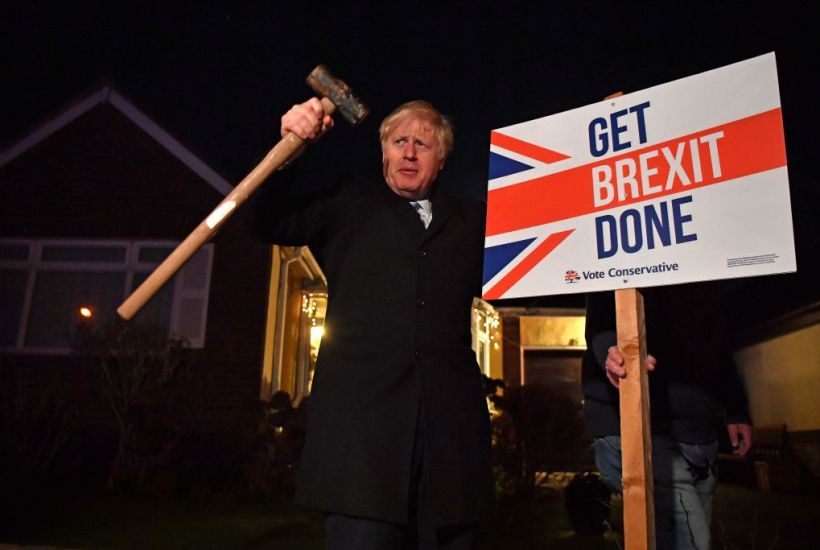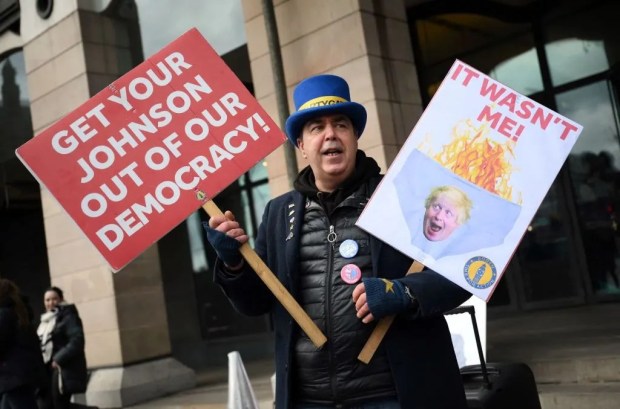Brexit talks between the two sides are deadlocked. Boris Johnson’s latest bid to ‘divide and conquer’ – pledging to visit Paris and Berlin to try and talk Macron and Merkel round – looks set to fail. The EU, it seems, has stayed united on Brexit, all the way to the end. We shouldn’t be surprised.
Like it or not, this is what the country voted for in 2016. Unless something huge happened subsequently to prevent it, this is always the situation where we were likely to end up. Why? Because the EU was never going to back down on anything they perceived as a genuine threat to the single market. Brussels was also more relaxed about no deal once the Northern Ireland protocol had been agreed. So if the UK insisted on pushing the sovereignty issue to the nth degree – as it has – then no deal was going to start to become inevitable.
But what actually happens if we leave the transition period with no deal at the end of the year? One of the biggest problems with a lot of the talk about a no-deal Brexit over the past few years has been in seeing it as an end in itself, as opposed to another staging post in the ongoing Brexit wars. Yet no deal isn’t ‘getting Brexit done’; it simply continues the issue on into another year, and means that Britain and the EU will still be in search of a solution that can last. If no deal can be agreed by the end of 2020, the EU is betting that severe disruption to UK supply lines leads to the British government returning to the negotiating table in 2021, chastened and ready to back down.
The politics of the situation makes this unlikely. If Boris gave in to EU demands to get a deal on worse terms than are currently offered sometime next year, it would almost certainly be the end of his premiership. And yet no-deal Brexit remains unsustainable, particularly when you consider the fact that the NI protocol puts a customs border down the Irish Sea. It is clear that Nigel Farage plans to use this as a mode of attack: sure, we left with no deal like I wanted to, he’ll say, but that Withdrawal Agreement and the NI protocol nonetheless makes it a ‘bad Brexit’.
As for the Tories, they are betting that no-deal disruption will be both minor and only short-term. But what if its effects are profound and continue to be felt for months or even years to come? In the middle of a pandemic, Brits are even less likely to forgive the government if there is chaos at the borders.
If there is no deal then, it is clear that Boris could be handing Keir Starmer a huge potential political advantage. For one, if Britain leaves without a deal it means the Labour leader doesn’t have to face an internal crisis about whether or not to vote for the ‘Tory deal’. It also means the Tories – and Boris in particular – will be on the hook for any food shortages or any other adverse effects that may occur in the new year; Labour’s hands will be clean.
To make matters worse for Boris, if the fall out from a no-deal Brexit lasts for a long time, Starmer can paint himself as the person to sort it out come the next election. Not by re-joining the EU, as that would still be politically toxic, but simply by pitching himself as the one to go to Brussels and get what Boris could not. His pitch to voters will be in the mould of the profile he has created for himself: Mr Competent. This will stand in stark contrast to blundering Boris who will have no one else to blame for the chaos and disruption caused by his failure to strike a deal with the EU.
So the reality is simple: if Boris Johnson doesn’t agree a deal over the coming days, the Tories may be about to hand Labour their winning platform for the next general election. If no-deal disruption lasts into 2022, Labour will be well positioned to pounce. It could then ironically fall to Keir Starmer to do what Boris Johnson couldn’t – and get Brexit done.
Got something to add? Join the discussion and comment below.
Get 10 issues for just $10
Subscribe to The Spectator Australia today for the next 10 magazine issues, plus full online access, for just $10.




















Comments
Don't miss out
Join the conversation with other Spectator Australia readers. Subscribe to leave a comment.
SUBSCRIBEAlready a subscriber? Log in